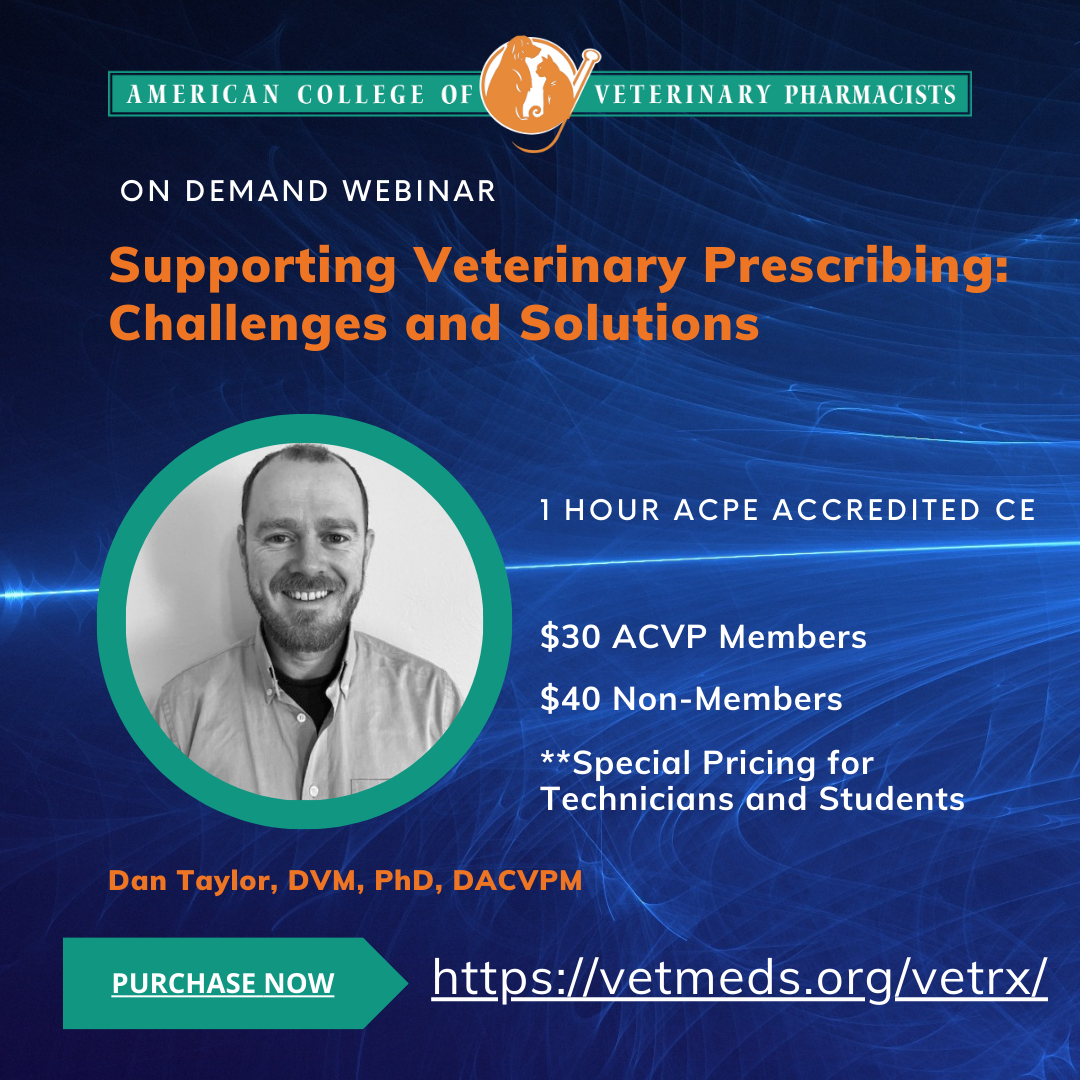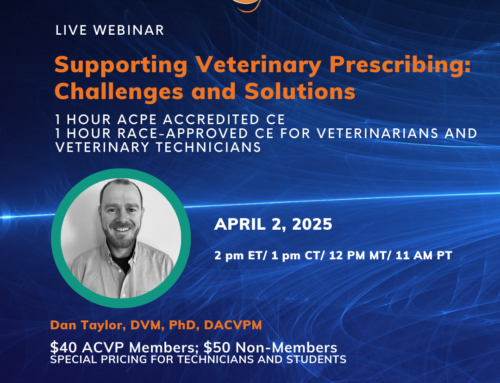Supporting Veterinary Prescribing: Challenges and Solutions
Veterinarians commonly prescribe medications for a variety of medical conditions. Medications are typically prescribed and filled in the clinic setting, typically at the time an animal is examined by a veterinarian. Veterinarians face a number of challenges in regard to prescribing including variation in dosing and clinical presentations by species, permission of off-label drug use, propensity for medication errors, changing guidelines and regulations, and concerns around use of certain classes of drugs (e.g., antibiotics, opioids). Given the clinical demands and current challenges, there is a need for solutions to assist veterinarians in the prescribing decision-making. The development of technologies and partnerships are key to establishing effective solutions. Veterinary pharmacists are key stakeholders that can provide expert collaboration in the solutions development process.
The purpose of this presentation is to define clinical prescribing challenges in veterinary medicine, outline possible technological solutions, and highlight the key roles of veterinary pharmacists in developing solutions to improve veterinary prescribing.

This webinar shines a light on the important role veterinary pharmacists play in improving prescribing practices and patient outcomes. It will help you better understand the challenges of veterinary prescribing, explore real solutions, and earn CE credit—all in just one hour. Register today and take the next step toward smarter, safer veterinary prescribing!
Registration
Speaker:
Dan Taylor, DVM, MPH, PhD works with scientists, decision-makers, and a multitude of stakeholders on rigorous, objective, and scientifically sound probabilistic assessments. He has used surveys and questionnaires to better understand how medicines are used in animal health. He has a PhD in epidemiology from the Colorado School of Public Health. His dissertation focused on antimicrobial drug prescription practices in veterinary medicine with an emphasis on the potential public health effects. Specifically, in his dissertation, multi-method One Health approaches were applied to better understand how antibiotics are used in companion animal medicine. Dan’s research interests are veterinary epidemiology, infectious disease, food safety, and antimicrobial resistance. His current work combines his veterinary background with modern risk analysis techniques to help the swine industry strengthen biosecurity and prevent the occurrence of foreign animal diseases, like African Swine Fever, in the United States. Dan has a Doctorate of Veterinary Medicine degree from Iowa State University and a Master in Public Health from the University of Iowa.

The American College of Apothecaries (ACA) is accredited by the Accreditation Council for Pharmacy Education as a provider of continuing pharmacy education. ACA has accredited this knowledge-based program for 1 contact hour (0.1 CEUs) of continuing education credit for pharmacists and pharmacy technicians.





